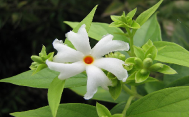Frequently Asked Questions
1. What are the differences between Siddha and Ayurveda? Medium of texts and treatise are in Tamil language.?
Mode of drug preparation is different.
Unique Siddha preparations such as Kattu, Kazhangu, Guru mrunthu, Chunnam and Muppu.
Fundamental functions of Vatha, Pitha and Kaba are different i.e, In Siddha, function of Vatha, Pitha, and Kaba are Creation, protection and Destruction respectively.
In Ayurveda, function of Vatha, Pitha, and Kaba are Destruction, Creation and protection respectively.
2. Why Siddha physicians are liberally prescribing metallic /mineral medicines?
Most of the Siddha medicines are based on Herbo-minerals and metallic, which are having more effective than the single and compound herbal drug preparations.
3. In which form herbal, drugs are in Siddha?
They are in Chooranam (Powder), Leghyam , Thylam (oil) and Saththu (Extract).
4. What are the basic principles of Siddha?
The basic principles of Siddha are 96 thathuvas, Panchaboothas and Thiridosa theory.
5. Is there any surgical treatment in Siddha?
Yes, Siddhars were performed by using different surgical methods such as Bloodletting (leech therapy), Muppattai salakai chikitchai (Surgical instrument for eye diseases) and Karanool chikichai (Medicated thread for piles and fistula) Chuttikai (Cauterization by using metal instruments like Gold, Silver and Copper for boils, abscesses, warts, Tumors etc).
6. Where we can easily avail Siddha treatment?
Panchayat union hospitals, Primary health centers, Municipality and Corporation dispensaries, Taluck and District Head quarter’s hospitals of Tamil nadu and Puducherry. CGHS dispensaries of Tamilnadu and Delhi.
7. Why Siddha system of medicine is not popularized in North India and European countries?
All Siddha manuscripts and texts are in Tamil language, so not yet popularized. The medium of Tamil language in all texts may be translated into Inter national language and modern technique may be introduced to the all Technical Institutions.
8. Why do the patients afraid to take Siddha medicines?
Due to Dietary restrictions and metallic drug administrations.
9. What are the dietary restrictions during the administration of Siddha medicines?
For certain diseases, the patients are to follow dietary regimens. For an example, Non-veg diets, Sea foods and Brinjal should be avoided in skin disorders.
10. What are the sources for Siddha medicines?
Herbs, Minerals, Arsenicals, Metals and Animal products.
11. What is the meaning of Varma in Siddha?
Varma is a miraculous treatment in Siddha, Which is currently in practiced at Kanyakumari District in Tamilnadu. It is one of the creative and curative secret methods of the disease in the body.
12. How can we reach the diagnosis of disease in Siddha?
Using Naadi Pariksha, Envagai thervu , Ezhu udarkattugal and Neer kuri with neikuri.
Oppurtunities
1. What is Siddha?
Siddha is a science of holistic approach, which illustrates Drug (Elixir) and Diet (Regimen) for human health care.
2. Is there any National Institute of Siddha?
Yes, this is located at Tambram Sanatorium in Chennai. This is a postgraduate Educational Research Institute for Siddha.
3. How many postgraduate specializations are in Siddha?
There is Six Specialization in Siddha, ie. Maruthuvam (General medicine), Gunapadam(Pharmacology), Noi Naadal, (Pathology), Sirappu maruthuvam(Special medicine), Kulanthai pini maruthuvam (Paediatrics) and Nanji nool maruthuvam (Toxicology).
4. How many Siddha Colleges are in India and what courses they offer?
There are 6 Siddha colleges are in Tamilnadu and one at Kerala, which are situated at Chennai (3), Coimbatore (1), Tirunelveli (1), Munchirai (1) and Santhagiri (1) at Trivandrum in kerala.
They are offering under graduation and Post graduation in Siddha.
5. Is there any separate Central Government Research Council working for Siddha?
There is separate Council for Siddha(Central Council for Research in Siddha), but the Siddha research institutes/units are functioning under Central Council for Research in Siddha (CCRAS)."
6. What is the course duration for U.G and P.G in Siddha?
5 years and 6 months for under graduation and 3 years for post graduation.
7. How many Siddha hospitals and dispensaries are in India?
There are 276 Siddha hospitals and 444 Siddha dispensaries.
8. Whether any Central research institute, Regional Research Institute and Clinical Research Units are in India for Siddha?
Yes. The CCRAS has Research Institutions for Siddha. A Central research institute is functioning at Chennai, one Regional Research Institute in Puducherry and one Clinical Research Unit is in Thirunelveli (Tamilnadu) and Santhagiri (Kerala) respectively.
9.What are the scopes for Siddha Graduates in the near future?
Apart from the self-established clinics, hospitals, and nursing homes, there are many scopes for Siddha graduates to get the settlements and jobs at State and Central government organizations. In other side, Private organizations, Pharmaceutical industries, Panchayat Union clinics, Municipality dispensaries, Corporation hospitals, Private colleges and private hospitals are offering them for good settlement of jobs.
Particularly, in southern parts of India and foreign countries, such as Malaysia, Singapore and Srilanka are having opportunities for Siddha graduates.
10.What are the scopes for Siddha pharmaceutical Industrialists?
In Tamilnadu more Siddha pharmacetical industries have been developed, due to want of Siddha /Ayurveda medicines. Now a day the people are switch over to Indian system of medicine and hence there is lot of scope for Siddha pharmaceutical industries There are good scopes for manufacturing Siddha medicines, since the modern drug industries are expecting some drugs from herbal-based system of medicines for Skin Disorders, such as Psoriasis and Leucoderma. These drug developments may attain using modern techniques with Siddha drugs, i.e. herbo-mineral combinations.


.png)
.png)
.png)
.png)
.png)
.png)